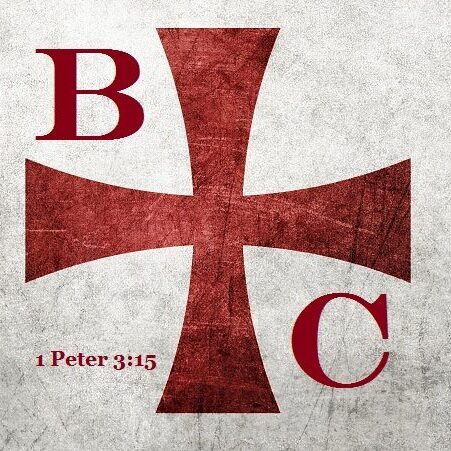By: Anthony Williams | October 30, 2022
As a police officer, I was taught to manage my breathing in high-stress circumstances. It is simply a matter of slowing breathing down that would ordinarily be cycling faster and faster due to the stress. Breathing out of control raises heart rate and inhibits fine motor skills and the ability to think clearly. Simply counting to slow my breaths in and out can slow my heart and calm my nerves in under 30 seconds.
I have learned to pass that tactic along to people in conflict with others, or people suffering injuries, and even my young sons to avoid anger or fear-based hyperventilation to bring control back to decision-making and injury management.
I have seen the tragedy of what happens when someone stops breathing for a variety of reasons, and have also been present and involved in more than a few attempts to push breath back into a person who has recently stopped breathing. Chest compressions work to push oxygenated blood to the brain and to extremities but the need to ventilate the lungs remains.
Breath and Blood in Creation
Genesis 2:7 (ESV) tells us that, after God formed Adam out of the dust, He “breathed into his nostrils the breath of life, and the man became a living creature”. As opposed to the modern secular ideas on the beginnings of life and man that indicate there was first nothing, which became everything, and then accidentally formed man without intent or purpose, the Bible tells us that man was gathered together from the dust and then God breathed life into him.
Breath and Blood in the Fall
The idea of breath in the Bible does not stop with Adam’s quickening. After the tragic fall of Adam and Eve due to their disobedience, and the subsequent slide of humanity into evil, God flooded the world, and “everything on the dry land in whose nostrils was the breath of life died” (Gen 7:22), except for those who “went into the ark with Noah, two and two of all flesh in which there was the breath of life” (Gen 7:15).
Breath and Blood in the Flood
The eight people who disembarked the ark when the waters subsided continued the unbroken breaths of men since Adam was first provided the breath of life by God. They honored God’s command to be fruitful and multiply, and so it has been since that time that now every day millions of their offspring take their first breath and millions take their last.
Put simply, when we breathe, we inhale air that exists in a near-perfect chemical balance that goes into the lungs and provides oxygen to around 800 million alveolar air sacs that trade carbon dioxide for oxygen that is transported through the blood around the body and eventually back to the lungs where carbon that remains from the trip is replaced once again with oxygen.
Breath and Blood and Its Complexity
The breaths we take are an unimaginably more complex process than we could have known. According to Dr. Jerry Moore, it only takes 1.5 seconds for the heart to spread blood over the lung area that is the size of a tennis court and then send it into circulation.[1] That small, but complex process takes place about 100,000 times a day. The weight of total blood that your body circulates every day equals about 16,000 pounds, and during your life, your heart will circulate the weight of two aircraft carriers.
While oxygen is obviously readily available in our environment, blood is confined to what you can make in your own body and, in a real jam, what somebody else donates for a blood transfusion.
Luckily, God has designed us to be efficient at blood-making. Red blood cells are made in bone marrow, which produces 2-3 million cells every second. At any given time there are 20-30 trillion in every person. The cells live for about four months at which time they are recycled in the bone marrow to be renewed and sent on the 100,000-mile trek of the human vascular system about 14,000 times per day.[2]
The first mention of blood in the Bible is after the tragedy of Cain murdering Abel. The very first man to be born to our newly fallen progenitors murdered the second and seemingly did so with forethought and in cold blood out of jealousy. When asked by God about his brother’s whereabouts, Cain replies to God, “I do not know, am I my brother’s keeper?” (Gen 4:9) God, who certainly knew what occurred, told Cain, “What have you done? The voice of your brother’s blood is crying to me from the ground.” (Gen 4:10)
Unlike oxygen, man’s blood is not life-giving outside the body. It has an amazing staining color and is especially hard to clean from clothing or other materials because it has proteins that bind to matter and can seep into porous materials, and blood is often microscopically detectable even when you can’t see it.[3]
Breath and Blood of Life in Israelite Sacrifice
God’s chosen people, the Israelites, were prescribed among other forms of sacrifice, ritualistic animal sacrifice to atone for the sins of individuals and for the entire group on a regular basis. The amount of animals that would have been sacrificed is unsearchable, but would have to be mind boggling. In 1st Kings 8:63 we read, “Solomon offered as peace offerings to the Lord 22,000 oxen and 120,000 sheep. So the king and all the people of Israel dedicated the house of the Lord.”
The prescribed tactic involved cutting the animal’s throat and draining the blood, which would be cast on the altar of the temple. This would atone for the sins of the individual, group or entire nation depending on the type of sacrifice.
Breath and Blood of Life in Science
The relationship between breath and blood offers the apologist multiple avenues for discussion and evangelism. A discussion on the science of the circulatory system, or the way in which people and plants trade carbon for oxygen in a manner that is too designed to be a coincidence can be quite moving for someone who is willing to open their mind to the idea that maybe this was all a result of forethought and not blind, pitiless indifference.
Oxygen is invisible to the naked eye, but we cannot live without it. We can feel its effect or the effect of a lack of it, but it is completely invisible. This creates a challenge for the next skeptic who says they can’t believe what they don’t see.
Science tells us blood needs oxygen, but oxygen does not need blood. As stated, oxygen is all around us, but blood is produced and generally confined to within your body. The apologetic illustrations that come to mind as a result of this reality are worth considering. Denying oxygen exists, but continuing to breathe it in and out to survive is similar to the arguments of many atheists today who “sit on God’s lap to slap His face”, as Dr. Frank Turek puts it.[4]
When evil is cited as a reason for a lack of belief in God, the very idea of evil has to be rooted in the existence of objective good which cannot exist without a standard of good; i.e. God. The very breath many use to curse God was and is His gift to us.
Breath and Blood of Life in Systematic Theology
I also believe that the way in which breath and blood are fused through the story from creation to Christ and to us is a fascinating apologetic study on its own. The first breath was breathed from the Creator, through Christ, into Adam (John 1:3).
When Christ was crucified, in addition to the tortuous flogging He endured, the crucifixion was designed to slowly take away His ability to breathe. Each breath on the cross would be agonizing because in order to take a breath, the victim has to push up against the nails in their feet to allow his or her lungs to properly gather air. Eventually, the victim would die not from bleeding to death, but ultimately from being unable to breathe. So, the One who gave humanity its first breath was robbed of His own while dying on the cross by the very humanity He gave breath to in the first place.
Thankfully, the good news comes after Christ’s breathing was, as it turned out, only temporarily paused for three days. In a matter of weeks, Christ appeared to many who interacted with Him and clearly shared their experiences with others to give wind to the sails of the Christian faith. With Christ’s promise being fulfilled, the Holy Spirit came like a wind to the disciples in the book of Acts and continues to breathe new life into each believer.
Breath and Blood of Life in Scriptural Inspiration
2 Timothy 3:16 says, “All Scripture is breathed out by God and profitable for teaching, for reproof, for correction, and for training in righteousness, that the man of God may be complete, equipped for every good work.” It is interesting that the author would use the phrase “breathed out” (theopneustos – God-breathed) to describe the words we find in what became the Bible. These words we read that are around 2,000 years old still contain the spiritual life-giving qualities to our souls that are well matched with the physical life-giving qualities that oxygen supplies our blood to ensure we can continue to live in this world.
Breath and Blood of Life in Sustainability
As a final apologetic point, oxygen can help answer the “there can’t be only one way” argument against this critical Christian doctrine. A human cannot live without oxygen for more than a few minutes before dying. There are no other gasses that can replace it as our source of life. In the same way that you can’t replace oxygen with any other gas and expect to live in this world very long, it is only the blood of Christ that will allow us to have life in the world to come.
About the Author

Tony Williams is currently serving in his 20th year as a police officer in a city in Southern Illinois. He has been studying apologetics in his spare time for two decades, since a crisis of faith led him to the discovery of vast and ever-increasing evidence for his faith. Tony received a bachelor’s degree in University Studies from Southern Illinois University in 2019. His career in law enforcement has provided valuable insight into the concepts of truth, evidence, confession, testimony, cultural competency, morality, and most of all, the compelling need for Christ in the lives of the lost. Tony plans to pursue postgraduate studies in apologetics in the near future to sharpen his understanding of the various facets of Christian apologetics.
Notes
[1] https://creation.com/the-breath-of-life (accessed 10/20/2022)
[2] https://creation.com/life-is-in-the-blood (accessed 10/20/2022)
[3] https://www.aftermath.com (accessed 10/20/2022)
[4] https://www.youtube.com/watch?v+rkeTgCQC8uA (accessed 10/20/22)





